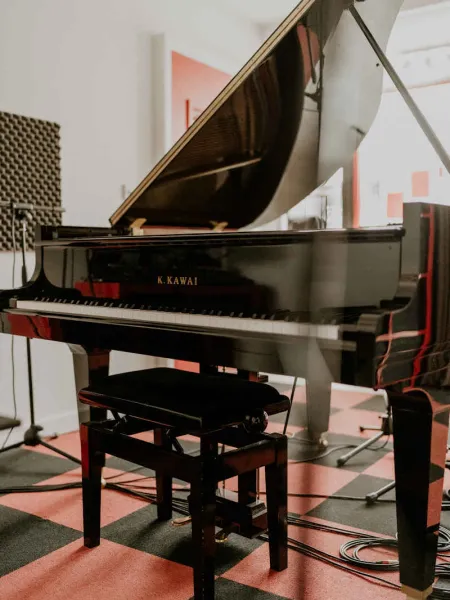Semitone was built by a musician for musicians, and our live nights are like no other. Performers and listeners agree that our music nights are unique, and we have one of the best built-in crowds in the area.

The music starts on Fridays at 8pm, and the show either consists of either a featured artist followed by an open mic or an extended open mic.
Our featured artists are seasoned performers, and though we welcome all styles and genres of music, we are particularly known for original music. Semitone is established as one of the finest music venues on the original music scene, and we have hosted some of the best.
Our open mic is equally as special, because it's for everyone - and we do mean everyone. All styles, all genres, all abilities - everyone is welcome. Though it's mostly music, we also welcome spoken word. Whether you are a professional performer or a beginner looking for a safe space, young or old, pop or classical, poetry or prose- you will be upheld and applauded by a loving audience and embraced as part of the group. The open mic portion of the show has become so popular that we now have every other Friday dedicated to just an open mic, to allow performers more time and space.
Pre-booking is highly recommended; we are very often filled to capacity. To book, please email info@semitonestudios.com
If you are interested in being a featured artist, please email Taylor Giacoma at taylor@mynameishardtospell.com
You are welcome to browse performances on our YouTube channel at http://youtube.com@semitonestudios.com
Please check our socials for the latest information on upcoming events!
